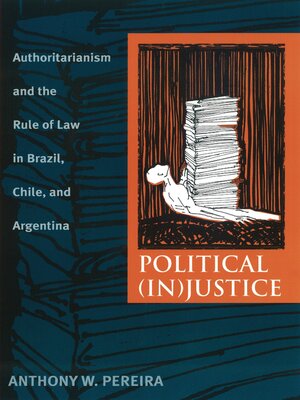Political (In)Justice
ebook ∣ Authoritarianism and the Rule of Law in Brazil, Chile, and Argentina · Pitt Latin American
By Anthony Pereira

Sign up to save your library
With an OverDrive account, you can save your favorite libraries for at-a-glance information about availability. Find out more about OverDrive accounts.
Find this title in Libby, the library reading app by OverDrive.



Search for a digital library with this title
Title found at these libraries:
| Library Name | Distance |
|---|---|
| Loading... |
Why do attempts by authoritarian regimes to legalize their political repression differ so dramatically? Why do some dispense with the law altogether, while others scrupulously modify constitutions, pass new laws, and organize political trials? <i>Political (In)Justice</i> answers these questions by comparing the legal aspects of political repression in three recent military regimes: Brazil (1964-1985); Chile (1973-1990); and Argentina (1976-1983). By focusing on political trials as a reflection of each regime's overall approach to the law, Anthony Pereira argues that the practice of each regime can be explained by examining the long-term relationship between the judiciary and the military. Brazil was marked by a high degree of judicial-military integration and cooperation; Chile's military essentially usurped judicial authority; and in Argentina, the military negated the judiciary altogether. Pereira extends the judicial-military framework to other authoritarian regimes—Salazar's Portugal, Hitler's Germany, and Franco's Spain—and a democracy (the United States), to illuminate historical and contemporary aspects of state coercion and the rule of law.







